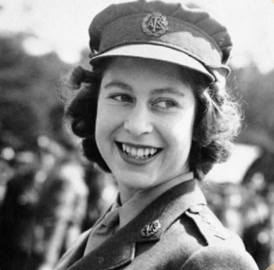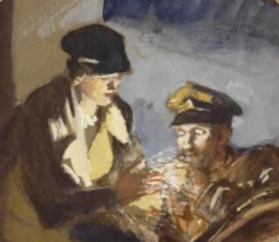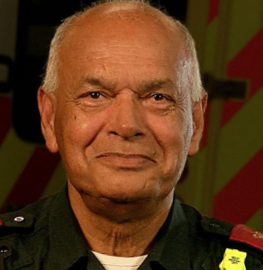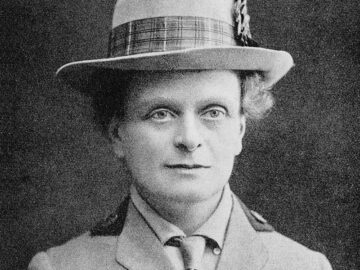Role: Ambulance driver
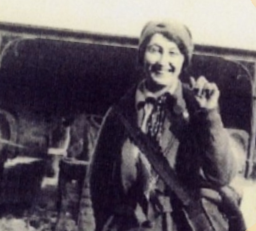
A daughter of the ninth earl of Denbigh, Lady Dorothie Feilding was one of the most decorated ambulance drivers of World War One; she was awarded the British Military Medal, the French Croix de Guerre and was made a Knight of the Belgian Order of Leopold II.
On 25 September 1914, a few weeks short of her 25th birthday, Dorothie arrived in France as part of Dr Hector Munro’s Ambulance Corps, charged with ferrying wounded soldiers from the frontline to clearing hospitals. She was to stay at the front in Flanders on and off until June 1917 and the brutality and horror of the war soon became apparent. After the Battle of Yser in October 1914 she wrote:
‘The town and villages and farms around were burning. The glare helped you to see at night but sometimes it looked like hell, with the flames curling and leaping up in the darkness and the crash as the houses fell in had something awful about it . . . I just had to drive through as quick as I could and how the tyres didn’t get cut to blazes by glass or burnt by embers oftener than they did I cannot understand.’
In 1914, the French Admiral Ronarc’h published a special Order of the Day commending Dorothie for ‘showing, almost every day, the finest example of devotion and of disregard for danger.’ For this, she would later be awarded the Croix de Guerre and in early 1915, the Order of Leopold II.
In 1916, after the British Army accepted female ambulance units, she was also the first woman to be awarded the Military Medal, a decoration which had only been established in March of that year. In recommending the award, a British commander noted that:
‘Lady Dorothie Feilding was thus frequently exposed to risks which probably no other woman has undergone. She has always displayed a devotion to duty and contempt of danger which has been a source of admiration to all.’
The King himself presented her with the medal at Windsor Castle in 1916. Although Dorothie did not return to the Front after 1917, she resumed her service, ferrying the wounded across London, ‘I had got tired of being merely ornamental.’


